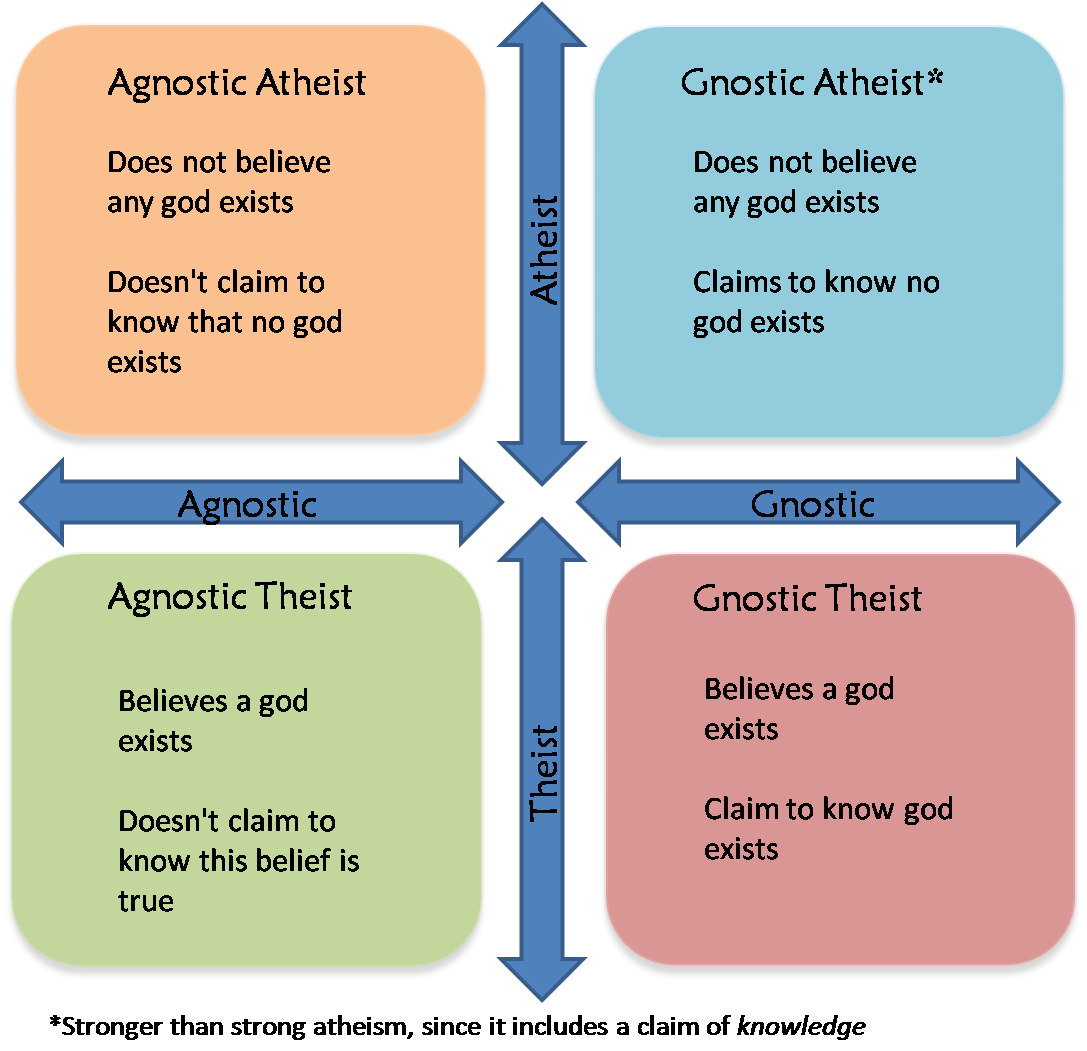The PhD has said about herself: "The more correct term is agnostic, but I am atheist." in the video:
How compatible is following contradiction in any atheist:
1. Atheism in an atheist says "God does not exist. Period.", but
2. Agnosticism in an atheist says: "Possibly there is God."
How can a logical human step from "currently there is no globally accepted academic proof for God" into "there is no God"? Would it more logical for atheist to say "I am agnostic, but hope that there is no God"?
How compatible is following contradiction in any atheist:
1. Atheism in an atheist says "God does not exist. Period.", but
2. Agnosticism in an atheist says: "Possibly there is God."
How can a logical human step from "currently there is no globally accepted academic proof for God" into "there is no God"? Would it more logical for atheist to say "I am agnostic, but hope that there is no God"?
Last edited:

